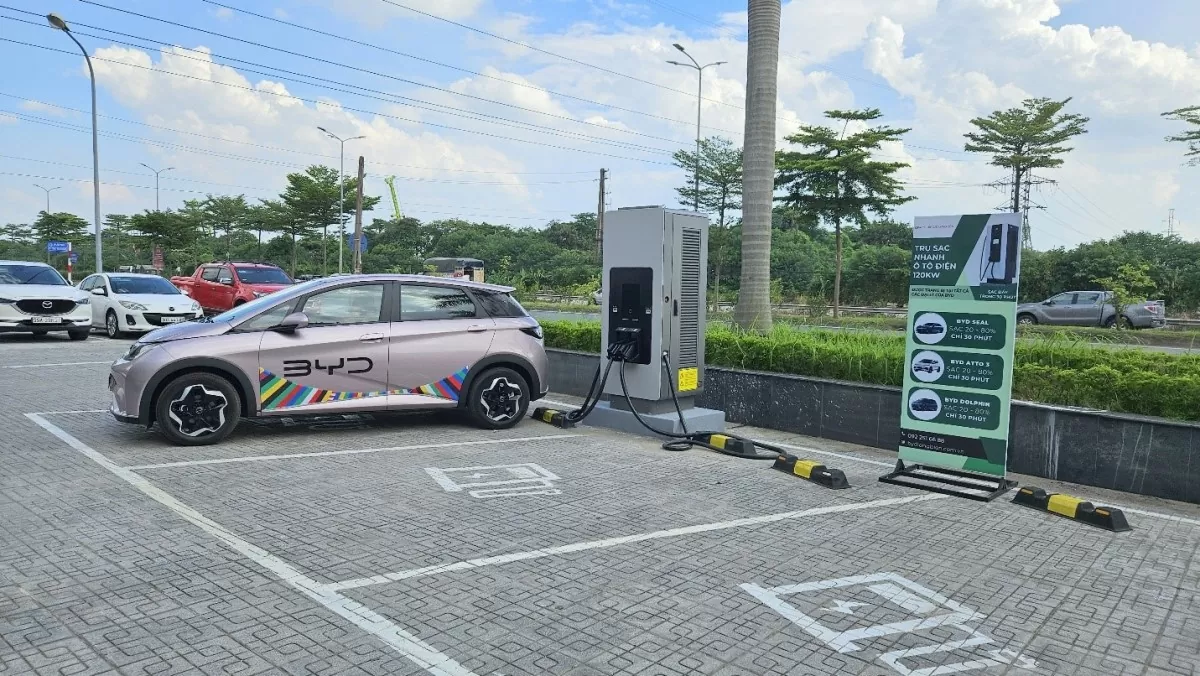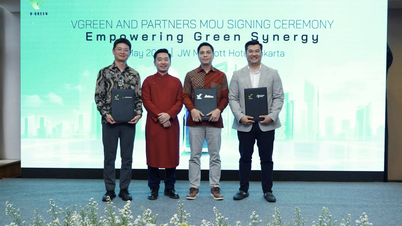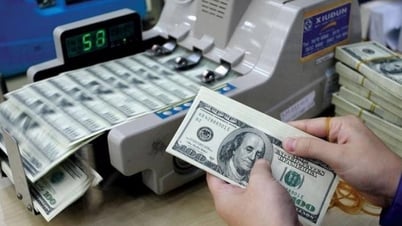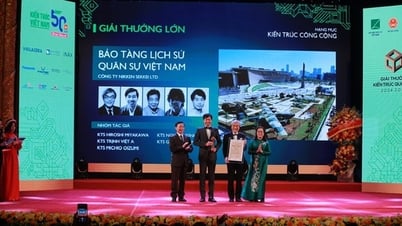Hybrid is a 'green car' label and is applied to many car models from luxury to popular such as Toyota, Suzuki but does not have preferential registration fees like electric cars.
Budget revenue reduced by 8,419 billion VND from exempting registration fees for electric vehicles
According to the Ministry of Finance 's submission on the draft Decree amending registration fees, since Decree 10/2022 takes effect, the reduction in state budget revenue due to exemption of registration fees for battery-powered electric vehicles is about VND 8,419.4 billion. The revenue shortfall increases rapidly every year.
Specifically, in 2022, the shortfall from exemption of registration fees is 381 billion VND, in 2023, the shortfall is 3,216 billion VND, and in 2024, the shortfall is up to 4,821 billion VND. Considering the total budget revenue from automobile registration fees nationwide (27,805 billion VND in 2024), the registration fee for electric vehicles is equivalent to 17.34%.
According to the draft decree, the Ministry of Finance proposed to extend the policy of free registration for electric cars for another 2 years (from March 1, 2025 to February 28, 2027) along with the growth rate of electric cars from 25 - 30% as forecast by the Ministry of Natural Resources and Environment , the amount of preferential budget for electric cars in the next two years could be up to 4,800 billion VND per year.
 |
| The cheapest hybrid car model in Vietnam costs about 600 million VND, with the same registration fee as a regular gasoline car. Photo: Lam Phuong |
The registration fee is 10-12% of the listed price of an electric car, helping to reduce the rolling cost accordingly and encouraging the consumption of electric cars. However, this policy also gives preferential treatment to imported electric cars, helping foreign electric cars have the opportunity to flood into Vietnam.
According to the General Department of Customs, electric vehicles imported into Vietnam mainly come from two countries: China and Germany. German car companies such as Audi, Porsche and Mercedes sell electric vehicles as high-end products, not for ordinary users, and their consumption is insignificant.
However, Chinese brands such as BYD and Aion are expanding their market share with imported products, taking advantage of the registration fee exemption policy. BYD recently delivered a batch of 50 BYD M6 7-seat electric cars with a listed price of about 700 million VND/car to a transportation service business unit in Hai Duong . This is an indication that cheap electric cars will penetrate the market very quickly this year.
Why isn't there a similar policy for hybrid cars?
Currently, despite being labeled as “green cars” and having proven fuel economy, hybrid cars are subject to special consumption tax of 15% (cylinder capacity under 1.5L), 25% (cylinder capacity from 1.5L to 2.0L) and 30% (cylinder capacity from 2.0L to 3.0L). The registration fee is 100% the same as for gasoline cars.
An expert from the Vietnam Automobile Manufacturers Association (VAMA) said that since 2022, the association has sent a proposal to the Government to consider reducing registration fees for self-charging hybrid vehicles (HEV) and externally charging hybrid vehicles (PHEV) to have a harmonious transition to electric vehicles. However, the proposal has not been met.
 |
Imported electric vehicles are expected to be exempt from registration fees like domestically assembled vehicles until the end of February 2027. Photo: Lam Phuong |
Therefore, in 2023, Toyota with a range of 6 hybrid models, sold a total of 2,639 vehicles. Suzuki has two models, sold 3,630 vehicles (mild hybrid), other brands such as Volvo, Lexus, Honda, Kia, Haval have insignificant sales. This year, the estimated sales of hybrid vehicles are only about 8 - 10 thousand vehicles, less than 2% of the market capacity.
Commenting on this policy, the Ministry of Industry and Trade requested the Ministry of Finance to study and evaluate the effectiveness of the policy of exempting registration fees for electric cars in the past, thereby making appropriate policy recommendations for the coming time.
In addition to battery-powered cars, the Ministry of Industry and Trade also proposed that the Ministry of Finance study a policy to exempt this fee for other types of motor vehicles using clean, green, and environmentally friendly energy such as self-charging hybrid vehicles (HEV), externally charged hybrid vehicles (PHEV) and pure fuel cell electric vehicles (FCEV)...; at the same time, consider the exemption rate based on CO2 emission levels to encourage the development of green transportation.
| In the Draft Strategy for the Development of Vietnam's Automobile Industry to 2030, with a vision to 2045, the Ministry of Industry and Trade proposed that it is necessary to research and develop policies to reduce registration fees for HEV, PHEV and BEV vehicles to achieve the target of electric vehicles, hybrid vehicles, vehicles using solar energy, biofuels or other green fuels (referred to as green vehicles) accounting for about 18 - 22% of total market sales (1 - 1.1 million vehicles) by 2030. |
Source: https://congthuong.vn/vi-sao-keo-dai-uu-dai-xe-dien-bo-qua-xe-hybrid-374614.html









































































































Comment (0)